Forex: Trading Forex With Banks
$5,00
Trading Forex with Banks: A Detailed Review – Immediate Download!
Let’s embark on a captivating adventure to uncover remarkable insights that spark your curiosity and elevate your understanding
Forex: Trading Forex With Banks
Overview

Trading Forex with Banks: A Detailed Review
The foreign exchange market is often likened to an intricate dance floor, where currencies waltz to the rhythm of global economics, politics, and investor sentiment. At the heart of this bustling stage are banks powerful players that wield significant influence over currency trading. For individual traders, the allure of engaging with these institutions often raises a pivotal question: is trading forex with banks the right move? In this article, we delve into an extensive review of forex trading with banks, highlighting its advantages and disadvantages while providing detailed insights that can help traders make informed choices. From liquidity and security to costs and customer support, let’s uncover the nuances of this sophisticated marketplace.
Pros of Trading Forex with Banks
Liquidity
Liquidity is the lifeblood of any financial market, ensuring that trades can be executed swiftly and efficiently. In the foreign exchange market, banks stand as titans of liquidity. They are responsible for a significant portion of the daily trading volume often exceeding $6 trillion. This immense activity creates a robust environment where traders can buy and sell large amounts of currency without substantial price fluctuations.
Imagine standing in a bustling marketplace, where every vendor is eager to make a sale. This is akin to trading with banks, where the high level of participation ensures that the selling and buying of currencies happens seamlessly. The depth of liquidity offered by banks makes it easier for traders to enter and exit positions, enabling them to respond swiftly to market movements.
Additionally, reduced slippage is a noteworthy benefit of working with banks. Traders can execute trades at their desired prices even during periods of high volatility due to the ample liquidity provided by these institutions. This liquidity, coupled with transparency and lower spreads in the interbank market, positions banks as formidable partners for forex trading.
Security
When it comes to managing funds, security is paramount. Trading with banks generally offers a more secure environment compared to other market participants. Banks are regulated entities that must adhere to stringent compliance measures. This regulatory oversight means that client funds are often safeguarded under various protections, offering traders peace of mind.
In many countries, regulators establish protective measures that ensure the stability of banks. For instance, in the United States, the Federal Reserve and the Securities and Exchange Commission oversee banking operations, reinforcing investor confidence. On a broader scale, this regulatory landscape minimizes the risks associated with fraud or financial malfeasance, making it less likely for traders to encounter issues with fund security.
Moreover, banks are known to incorporate advanced security protocols in their trading platforms. Enhanced encryption methods and fraud detection technologies further bolster the security of trading activities, allowing traders to focus solely on strategizing and executing their trades.
Access to Research and Analysis
Another advantage of trading with banks is the access to research and analysis. Major financial institutions often possess dedicated research teams that monitor market trends, conduct technical analysis, and produce insightful reports. This wealth of knowledge can be invaluable for traders seeking to make sound decisions based on current market conditions.
Imagine receiving a roadmap before embarking on a complex journey this is what bank-sponsored research provides for traders. By leveraging actionable insights, such as forecasts and economic indicators, traders can better navigate the volatile forex waters. Insights driven by data can illuminate potential opportunities that may otherwise remain hidden, enhancing a trader’s decision-making process.
Furthermore, many banks offer educational resources and webinars led by experts in the field. This continuous learning environment empowers traders with enhanced skills and knowledge, ultimately translating into more informed trading decisions.
Competitive Pricing
Competitive pricing is another enticing aspect of trading forex with banks. Given their dominant position in the market, banks can secure better pricing for their clients. This pricing advantage is often reflected in narrower spreads and reduced transaction costs, which can significantly impact a trader’s bottom line.
To illustrate this, here’s a brief comparison:
| Source | Spread | Commission |
| Major Bank A | 1.2 Pips | $5 per lot |
| Major Bank B | 1.0 Pips | $4 per lot |
| Retail Broker X | 1.5 Pips | $10 per lot |
As depicted in the table above, the competitive edges offered by banks often result in better pricing compared to smaller retail brokers. This can lead to significant savings, especially for high-frequency traders or those trading large volumes. By capitalizing on lower transaction costs, traders can retain a larger portion of their profits while mitigating the impact of costs on their overall trading strategy.
Cons of Trading Forex with Banks
Higher Costs
While the advantages are compelling, trading forex with banks is not without its drawbacks. One notable disadvantage is the potential for higher costs. Despite offering competitive pricing, banks may impose additional fees and commissions, particularly for traders who engage in high volumes or frequent trades.
Consider the analogy of dining at a fine restaurant versus a casual eatery while you might enjoy exquisite service and gourmet offerings at the former, the bill can add up quickly. Similarly, while banks provide extensive services, those services may come with a higher price tag, necessitating a careful evaluation of trading costs.
It’s crucial for traders to conduct a thorough assessment of the fees associated with trading through banks. Factors such as account maintenance fees, withdrawal fees, and inactivity fees can quickly accumulate, impacting a trader’s net profits. When considering a trading strategy, these costs must be factored into the overall decision-making process.
Limited Leverage
Unlike forex brokers that may offer generous leverage options, banks tend to provide limited leverage. This conservative approach can indeed serve as a safety net, protecting traders from the heightened risks associated with high-leverage trading strategies. However, it may also restrict potential gains.
For many traders, particularly those who thrive on maximum exposure, this limitation can be frustrating. Picture climbing a mountain where the height you can reach is capped though you are assured of safety, you might feel constrained from reaching new heights. Consequently, traders who prefer aggressive strategies may find that working with banks limits their ability to capitalize on larger fluctuations in currency prices.
While lower leverage can reduce the risk of significant losses, it can also stifle growth opportunities. This dichotomy poses an important consideration for traders when deciding whether to engage with banks or seek alternatives.
Limited Trading Platforms
An additional drawback of trading forex with banks is the provision of limited trading platforms. Unlike third-party platforms such as MetaTrader that offer a myriad of advanced features from automated trading to customizable indicators banks often utilize proprietary platforms with fewer functionalities.
Visualize a toolbox: the more tools you have at your disposal, the more intricate the projects you can undertake. When proprietary trading platforms fall short on functionality, traders may feel ********ped in executing advanced trading strategies. This limitation can hinder traders’ ability to analyze the market comprehensively, affecting their overall trading performance.
Also, some banks may lack connectivity to popular trading applications, further alienating tech-savvy traders who rely on efficient and user-friendly interfaces. Overall, the absence of advanced features can dissuade traders from selecting banks as their primary trading partners.
Limited Customer Support
In the realm of customer service, larger banks often struggle to offer the personalized support that individual traders require. With a broader client base, the complexity of managing numerous accounts may lead to a diluted quality of service, making it challenging for traders to receive timely assistance.
Imagine being in a crowded festival and trying to get help from an overwhelmed vendor while help is available, the wait can feel interminable. Similarly, when traders encounter issues or have questions, they may find it cumbersome to navigate the support channels of major banks.
For traders who value immediate and tailored customer service, this limitation poses a significant hurdle. Smaller forex brokers, on the other hand, often pride themselves on more personalized assistance, ensuring that their clients receive timely responses and support whenever necessary.
Conclusion
In conclusion, trading forex with banks presents a unique blend of benefits and drawbacks that traders must weigh against their individual needs and trading goals. While the considerable liquidity, enhanced security, access to research, and competitive pricing make banks an appealing option, the higher costs, limited leverage, restricted trading platforms, and lesser customer support may counterbalance these advantages.
To make an informed decision, traders should carefully assess their trading style, objectives, and preferences. Exploring the pros and cons of engaging with banks can help them determine the right path in their forex trading journey. Ultimately, understanding these facets will empower traders to navigate the global currency market with greater confidence and competence.
Frequently Asked Questions:
Innovation in Business Models: We use a group purchase approach that enables users to split expenses and get discounted access to well-liked courses. Despite worries regarding distribution strategies from content creators, this strategy helps people with low incomes.
Legal Aspects to Take into Account: Our operations’ legality entails several intricate considerations. There are no explicit resale restrictions mentioned at the time of purchase, even though we do not have the course developers’ express consent to redistribute their content. This uncertainty gives us the chance to offer reasonably priced instructional materials.
Quality Control: We make certain that every course resource we buy is the exact same as what the authors themselves provide. It’s crucial to realize, nevertheless, that we are not authorized suppliers. Therefore, the following are not included in our offerings: – Live coaching sessions or calls with the course author.
– Entry to groups or portals that are only available to authors.
– Participation in closed forums.
– Straightforward email assistance from the writer or their group.
Our goal is to lower the barrier to education by providing these courses on our own, without the official channels’ premium services. We value your comprehension of our distinct methodology.
Be the first to review “Forex: Trading Forex With Banks” Cancel reply
You must be logged in to post a review.
Related products
Forex Trading
The Complete Guide to Multiple Time Frame Analysis & Reading Price Action By Aiman Almansoori

 Monster Email Marketing for eCommerce Brands By Adam Kitchen
Monster Email Marketing for eCommerce Brands By Adam Kitchen 
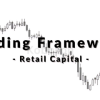

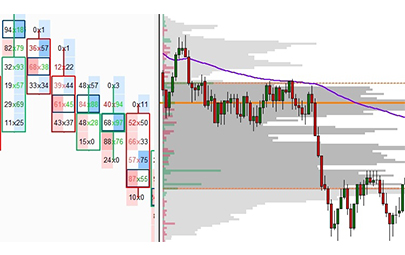
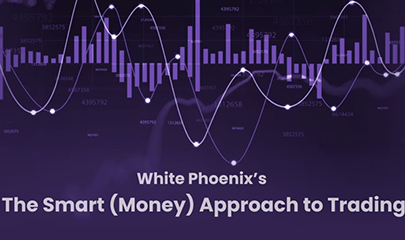



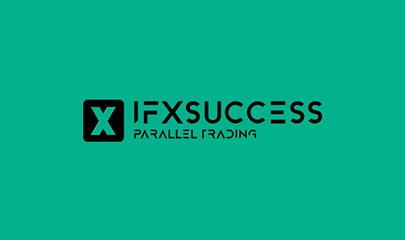
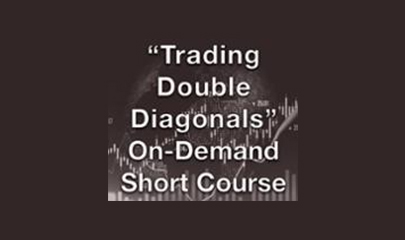
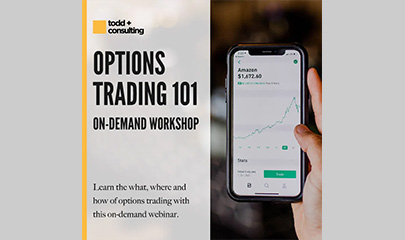
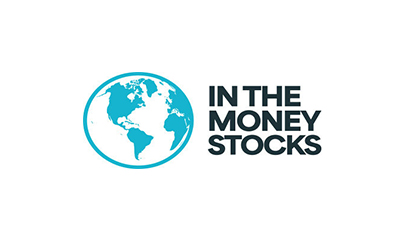






Reviews
There are no reviews yet.